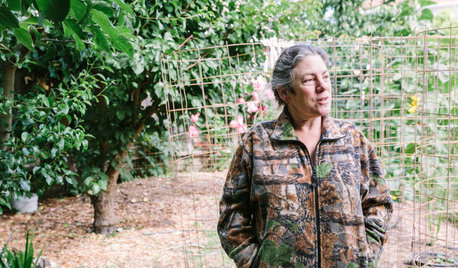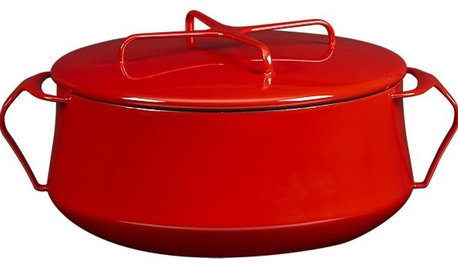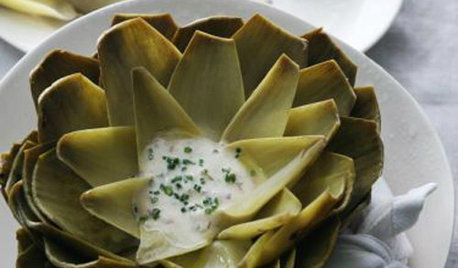How much food is too much food?
bobvisaa
10 years ago
Related Stories

FARM YOUR YARDTo Get the Food They Believe In, These Urbanites Grow Their Own
Home gardeners farming on their city lots find that local, organic food isn’t the only reward
Full Story
PRODUCT PICKSGuest Picks: Oven-to-Table Food Service
Serving food in the same dish it was cooked in means more time with guests and less time cleaning up
Full Story
FARM YOUR YARD6 Things to Know Before You Start Growing Your Own Food
It takes time and practice, but growing edibles in the suburbs or city is possible with smart prep and patience
Full Story
ARTFood Art Adds Flavor to Rooms
Scrumptious paintings and prints in mouthwatering colors show off your good taste way past the kitchen
Full Story
KITCHEN DESIGNDeliciously Simple: Food Photographer Warms Up a Rental Kitchen
See how a San Francisco cook and blogger makes her small kitchen shine
Full Story
HOLIDAYSShow Us Your Party-Time Food and Drink Station
Entertaining season is upon us, and we want to see photos of how you keep guests refreshed
Full Story
The New Simplicity: Today's Style for Food and Home
Make yourself at home with a more relaxed style at the table — and in interior design
Full Story0

FARM YOUR YARDHello, Honey: Beekeeping Anywhere for Fun, Food and Good Deeds
We need pollinators, and they increasingly need us too. Here, why and how to be a bee friend
Full Story
KITCHEN STORAGEPantry Placement: How to Find the Sweet Spot for Food Storage
Maybe it's a walk-in. Maybe it's cabinets flanking the fridge. We help you figure out the best kitchen pantry type and location for you
Full StorySponsored
More Discussions







equinoxequinox
sbryce_gw
Related Professionals
Comstock Park Landscape Architects & Landscape Designers · Middle River Landscape Architects & Landscape Designers · Canton Landscape Contractors · Stamford Landscape Contractors · Aberdeen Landscape Contractors · Lantana Landscape Contractors · Leicester Landscape Contractors · Roswell Landscape Contractors · Wheat Ridge Landscape Contractors · Eastlake Landscape Contractors · Okolona Stone, Pavers & Concrete · Four Corners General Contractors · Casas Adobes General Contractors · Linton Hall General Contractors · Manalapan General Contractorssbryce_gw
chuckiebtoo